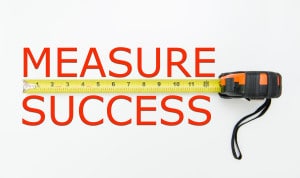As the saying goes, what gets measured gets done. How are you measuring your sales managers? One metric is, of course, “% of plan.” But you already know that.
Every sales manager wants to be provided with a clearly defined target. Give them a clear target and they will hit it. The trouble with providing them with only one metric focused on end results, such as “% of Plan,” is that sales managers can become very short-term focused. They will put their effort into chasing big deals instead of coaching. So your sales teams aren’t being built to last.









